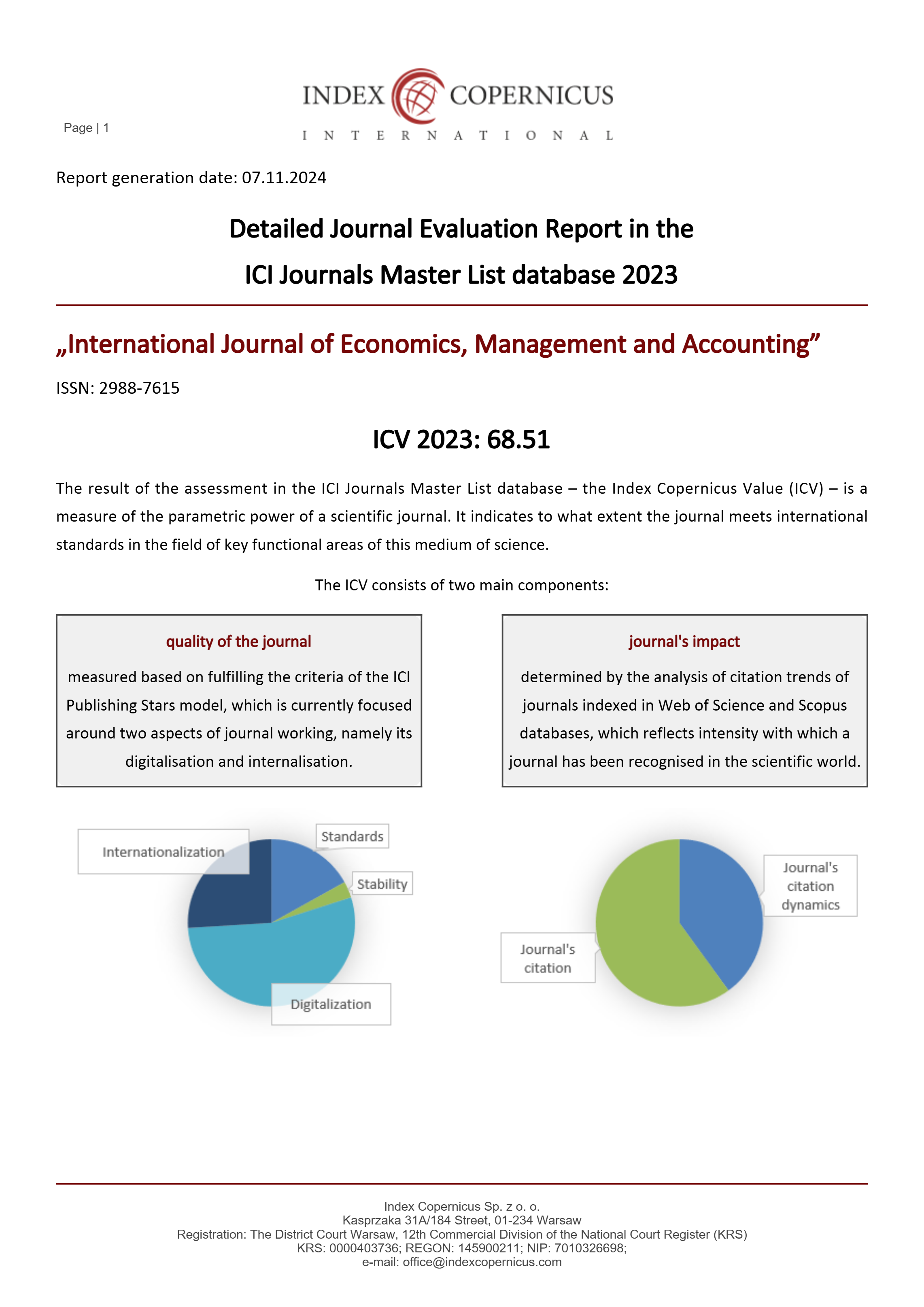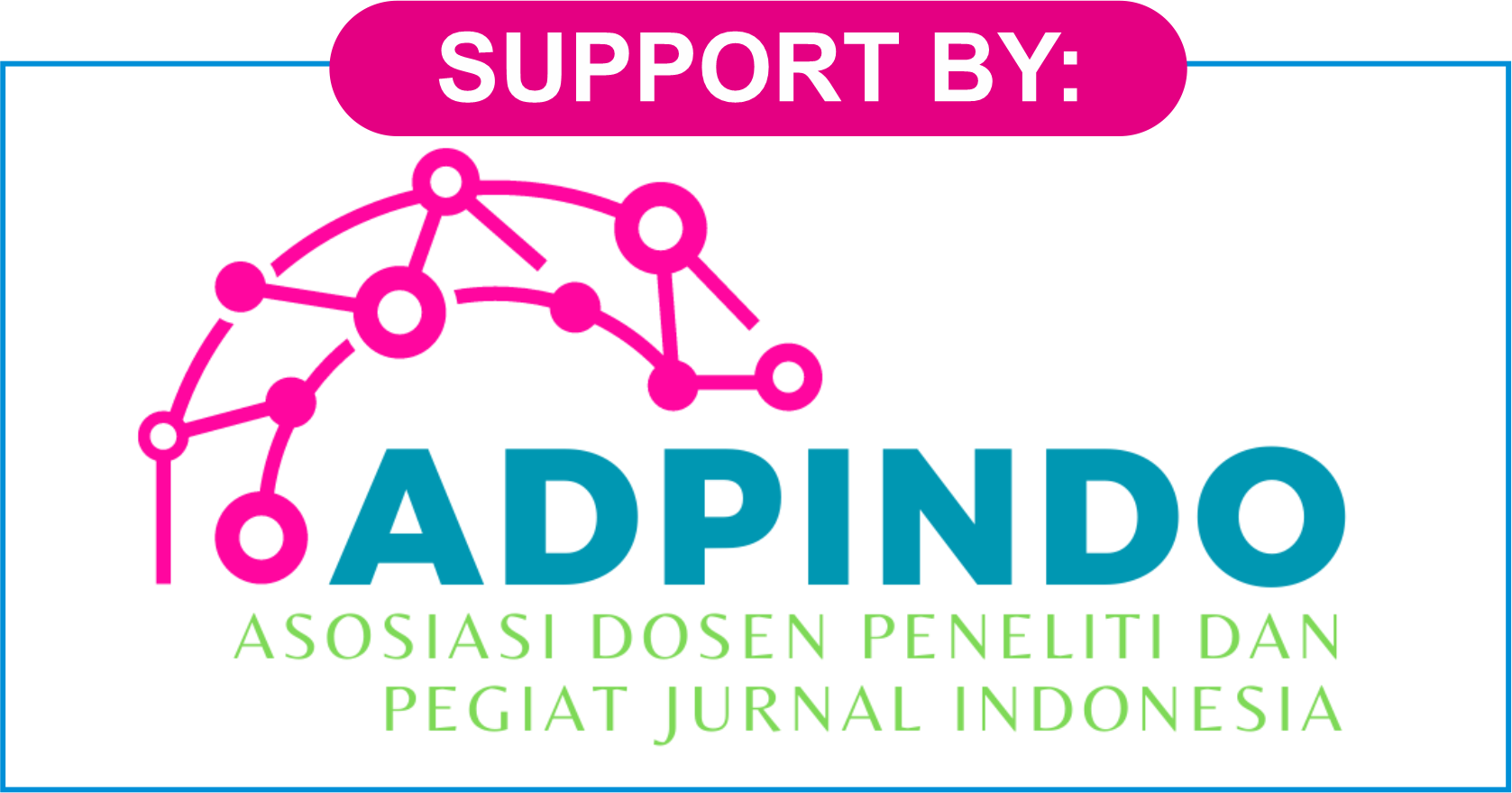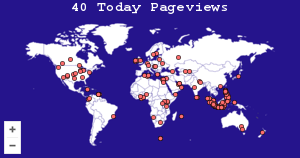Analysis of the Influence of Migration of Indonesian Workers (TKI) Abroad on Indonesia's Economic Growth
DOI:
https://doi.org/10.47353/ijema.v1i10.110Keywords:
International Migration, Economic Growth, Gross Domestic Product (GDP), Indonesian Workers (TKI), RemittancesAbstract
This research aims to analyze the influence of migration of Indonesian Migrant Workers (TKI) abroad on Indonesia's economic growth. This type of research is quantitative research. This research uses secondary data sourced from World Bank and BP2MI data. The data used in this research is time series data from 1983-2019. The method used in this research is the Autoregressive Distributed Lag (ARDL) model data analysis method. The research results show that in the short-term migrant workers abroad have a positive and significant effect on Indonesia's economic growth, while remittances in the short term have a negative and significant effect on Indonesia's economic growth. Meanwhile, in the long term, migrant workers abroad and remittances have an insignificant negative effect on economic growth in Indonesia.
Downloads
References
Adenutsi, Deodat E. 2011. “Financial Development, International Migrant Remittances and Endogenous Growth in Ghana.” Studies in Economics and Finance 28(1):68–89. doi: 10.1108/10867371111110561.
Afriska, Ade Eka, T. Zulham, and Taufiq C. Dawood. 2019. “Pengaruh Tenaga Kerja Indonesia Di Luar Negeri Dan Remitansi Terhadap Pdb Per Kapita Di Indonesia.” Jurnal Perspektif Ekonomi Darussalam 4(2):231–48. doi: 10.24815/jped.v4i2.12947.
Akhter, Nahid, and Md. Kamrul Islam. 2019. “The Impact of Migration and Migrant Remittances on Household Poverty in Bangladesh.” Asian Development Perspectives 10(1):43–59.
Arsyad, Lincolin. 2004. Ekonomi Pembangunan. Edisi Keem. Yogyakarta: STIE - YKPN.
Artina, Nyimas. 2022. “Pengaruh Tenaga Kerja Indonesia, Remitansi, Dan Inflasi Terhadap Pertumbuhan Ekonomi Di Indonesia.” Jurnal Ilmu Ekonomi Dan Bisnis Universitas Multi Data Palembang 11(2):338–57. doi: https://doi.org/10.35957/forbiswira.v11i2.2245.
Basuki, Agus Tri, and Nano Prawoto. 2016. Analisis Regresi Dalam Penelitian Ekonomi Dan Bisnis: Dilengkapi Aplikasi SPSS Dan Eviews. Jakarta: Rajawali Pers.
Dhimas, Pratama Muhamad Erwin. 2016. “Pengaruh Pengiriman Remiten Tenaga Kerja Indonesia Terhadap Kemiskinan Di Kabupaten Kendal.” Ekonomi Pembangunan 3(1):2252–6765.
Ghozali, Imam. 2018. Aplikasi Analisis Multivariate Dengan Program IBM SPSS. Edisi 9. Semarang: Badan Penerbit Universitas Diponegoro.
Jawaid, Syed Tehseen, and Syed Ali Raza. 2012. “Workers’ Remittances and Economic Growth in South Asia.” (39001).
Karagoz, Kadir. 2009. “WORKERS’ REMITTANCES AND ECONOMIC GROWTH: EVIDENCE FROM TURKEY.” 4(13):1891–1908.
Lucas, R. E. B., and O. Stark. 1985. “Motivation to Remit: Evidence from Botsnawa.” Journal of Political Economy (93):901–18.
Mankiw, N. Gregory. 2009. “Macroeconomics.” New York: Worth Publisher.
Mantra, Ida Bagus. 1998. Migrasi Tenaga Kerja Indonesia Ke Malaysia: Determinan, Dampak, Dan Kebijakan. Yogyakarta: Pusat Penelitian Kependudukan, Universitas Gadjah Mada.
Nugraha, A. P., & Suriani, S. (2023). Boosting Employee Engagement And Collaboration. SEIKO: Journal of Management & Business, 6(2).
Prof. Dr. Sugiyono. 2013. METODE PENELITIAN KUANTITATIF, KUALITATIF, AN R&D. Bandung: Penerbit Alfabeta Bandung.
Todaro, Michael P. &. Stephen C. Smith. 2006. Pembangunan Ekonomi. Edisi Kesembilan. Jakarta: Penerbit Erlangga.
Ukhtiyani, Khairah, and Setyabudi Indartono. 2020. “Impacts of Indonesian Economic Growth: Remittances Migrant Workers and FDI.” Jejak 13(2):280–91. doi: 10.15294/jejak.v13i2.23543
Downloads
Published
How to Cite
Issue
Section
License
Copyright (c) 2024 Pebri Kurniawan, Ukhti Ciptawaty, I Wayan Suparta, Arivina Ratih YT, Heru Wahyudi

This work is licensed under a Creative Commons Attribution 4.0 International License.











